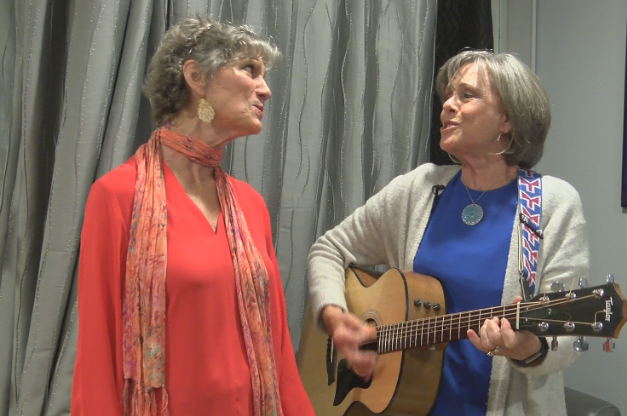AUSTIN, Texas (Nexstar) — Almost two-thirds of Americans living with Alzheimer’s are women, according to the Alzheimer’s Association. Statistics from the organization show women in their 60s are more than twice as likely to develop Alzheimer’s disease over the rest of their lives as they are to develop breast cancer and more than 60 percent of Alzheimer’s and dementia caregivers are women.
Maria Shriver, founder of the nonprofit The Women’s Alzheimer’s Movement, was part of a panel on women’s brain health at SXSW on Friday. The nonprofit has awarded research grants to the Alzheimer’s Association, Cure Alzheimer’s Fund, Cleveland Clinic’s Lou Ruvo Center for Brain Health, Ann Romney Center for Neurologic Diseases, Dr. Roberta Brinton, M.D. from the Center for Innovation in Brain Science at the University of Arizona Health Sciences, the Alzheimer’s Disease and Memory Disorders Program at New York-Presbyterian/Weill Cornell Medical Center and University of California, Irvine’s Institute for Memory Impairments and Neurological Disorders.
“I think there are so many people looking in different places, places that we’ve never looked before,” Shriver said in an interview. “I think there are so many more philanthropists getting involved and so many more people from disproportionate areas that were never involved before.”

Shriver spoke alongside Dr. Fardia Sohrabji, founder and director of the Women’s Health in Neuroscience Program at the Texas A&M College of Medicine and actress Alexandra Socha. Socha is an advocate with the Alzheimer’s Association – she became involved after her mother was diagnosed with the disease at age 50.
The Alzheimer’s Association and the Women’s Alzheimer’s Movement also premiered a new public service announcement (PSA) and an accompanying newly developed Facebook camera effect during the SXSW session. This campaign includes a newly developed Karaoke-style camera effect experience on Facebook, where people with Facebook accounts can sing with the AlzheimHER’s Chorus and share their duet on social media, according to a release from the Alzheimer’s Association. A local advertising agency, GSD&M, helped with the project after connecting with Shriver a little over two years ago.
“For all of us it’s personal,” GSD&M President Marianne Malina said. “I think there is a drive to solve this. I lost my dad to Alzheimer’s and every person who worked on this team is related to this issue in a way that there’s a personal connection.”
Music can help bring everyone together in what is often a tough journey, Malina said.
“Music transcends,” Malina said. “One of the things I love most about my phone is that anytime I get on my phone, I still have my dad’s playlist on my playlist. It was a way we could storytell. It was a way we could be calm. We could enjoy it together. To this day, I still play this playlist.”
“The ultimate satisfaction in any sort of communication and culture is a human connection,” Malina continued.

Edie Elkjer and Susie Higley with Music Memories Austin share the same sentiment. Both spread their gift of music at different care facilities throughout Central Texas.
“We see people opening up, finding somewhere inside them that nobility that is so human and so vital to each and every one of us that sometimes gets lost in the disease of Alzheimer’s,” Higley said.
“We are at a similar age of a lot of the people that are in these, so it’s been very eye-opening for us,” Elkjer said.
Elkjer remembers how the power of music impacted one man who has routinely come back for gatherings organized by Music Memories Austin.
“This gentleman walked down the hall and came in and he was sort of, on the periphery of the workshop and he had seemed really out of sorts, very grumpy,” Elkjer recalls. “All of a sudden his foot started tapping and his hand started keeping the beat.”
Higley and Elkjer are hoping to start a choir for caregivers and people affected by Alzheimer’s within Central Texas by September 2019.
In 2018, findings from a study into reproductive history and dementia risk in women were presented at the Alzheimer’s Association International Conference.
“More research is needed in this area, because having a better understanding of sex-specific risk factors across the lifespan may help us discover — and eventually apply — specific prevention strategies for different populations of people with Alzheimer’s and other dementias,” Alzheimer’s Association Chief Science Officer Maria Carrillo, Ph.D., said.
WATCH: Susie Higley and Miss Emma. dance at AGE of Central Texas’ Austin Adult Day Health Center.
“We also utilize music therapy in our Memory Connections early memory loss support programs, which meet at sites throughout the area,” Rob Faubion, Director of Marketing and Communications of AGE of Central Texas said




























